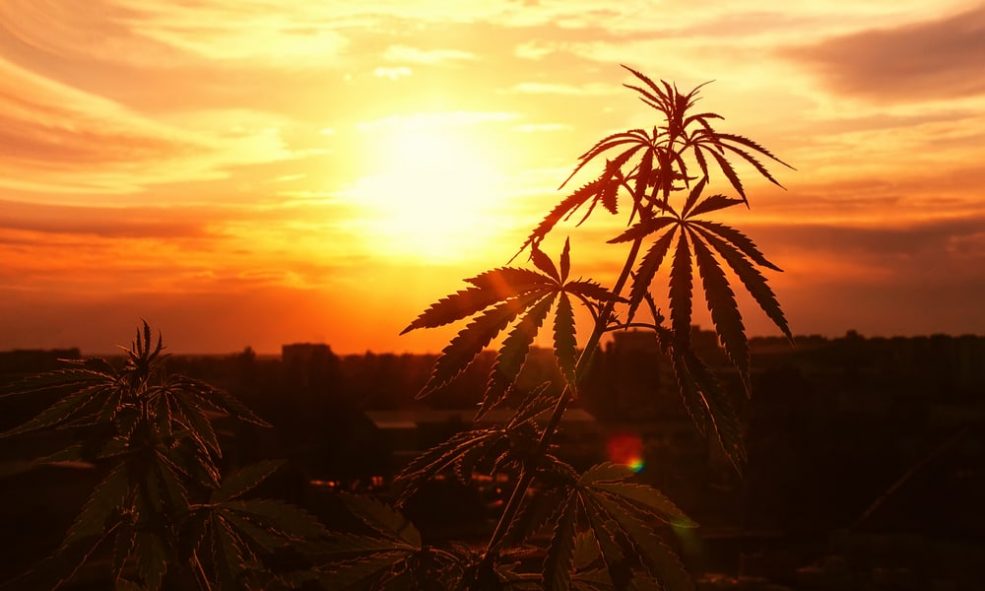
Cannabis and Climate Change Legislation – Cannabis News, Lifestyle
Politicians in the Netherlands are stealing Dutch farmland under the guise of an environmental emergency. Many across the Atlantic are wondering: what about cannabis and climate change legislation?
Cannabis cultivation is not exactly carbon neutral. Depending on where and how you grow it, a cannabis grower can use up to 22 liters of water per plant per day. According to researchers, that’s three billion liters per square kilometer for the traditional growing season from June to October.
And that’s just water consumption. What about other pollution problems? The Dutch peasant protest is the result of politicians and bureaucrats who are more guided by the values of the Davos elite than by the voters. So it’s only a matter of time before the same draconian legislation reaches Canada and the United States.
All in the name of fighting climate change. Just as losing our mobility rights is part of fighting the flu.
So what about cannabis and climate change legislation? BC Bud has already declined in Canada as Trudeau never included them in his legalization scam. But what about the small farmers in Colorado or California?
The World Economic Forum (WEF) wants agriculture to be concentrated in the hands of a corporate-state elite. How will cannabis cultivation contribute to this?
Cannabis produces volatile organic compounds
William Vizuete is an Associate Professor at the University of North Carolina. He is working on an air quality model to better understand how commercial cannabis cultivation affects the environment.
So far, much of the environmental criticism of the cannabis industry has stemmed from its illegal status. Farmers don’t necessarily care about the externalities of their facility if they don’t own the surrounding land.
But Vizuete’s work focuses on legal cannabis cultivation. His research shows that cannabis plants produce volatile organic compounds, or VOCs, which are considered harmful pollutants.
“If plants produce VOCs, there’s a high possibility that growing cannabis under certain conditions could affect ozone,” says Vizuete.
You may have heard of VOCs by a different name: terpenes.
Terpenes are a naturally occurring compound found in cannabis plants. Terpenes help give cannabis its aroma and flavor. But when mixed with nitric oxide and sunlight, cannabis terpenes become an ozone-depleting aerosol.
Vizuete’s research focuses on high desert areas in Colorado, where there are little to no VOC sources. Ever since cannabis was legalized, there has been a regular source of VOCs.
The problem gets worse in Denver, which is also considered a high desert area. The combination of VOCs with nitrogen oxides from cars makes the problem worse. High levels of VOCs have been linked to liver damage and cancer.
For his research, Vizuete grew four cannabis strains for 90 days and measured their terpenes during growth. Extrapolated from this experiment, Vizuete concludes that cannabis cultivation more than doubles the current rate of annual VOC emissions. From 520 tons of ozone before legalization by Colorado to 2,100 tons after legalization.
Vizuete says: “We picked four [cannabis] Strains based on their popularity and their VOC emissions may not be representative of all strains. In addition, emissions can be even higher in commercial facilities where conditions are optimized for growth.”
Laws on cannabis and climate change ignore property rights

Dutch farmers are demonstrating against environmental tyranny by driving their tractors on highways, blocking roads with burning hay bales, and occupying food distribution centers, borders and airports. And by spraying manure on government buildings.
Cannabis growers may soon need to do the same.
Using pollution for greater government control is an insidious policy.
For one thing, pollution is an infringement of private property. In the 18th and early 19th centuries, the courts recognized pollution as such. If a train left soot on your crops, you could go to a judge and get an injunction on the railroad.
But then politicians intervened with legislation to protect the “public good.”
The result was an industry that developed without having to respect private property rights. Old drawings of Victorian London show a city smothered in smog. Chimneys dominate the skyline. None of this would have been possible if legislators had respected property rights.
Of course, the industry would have developed more slowly. But entrepreneurs should have factored their externalities into their profit and loss accounts.
Second, reducing emissions this late in the game will only lead to mass poverty and starvation. Suppose politicians are serious about fighting climate change. In this case, they would recognize the role of fossil fuels in the transition to a “green economy” rather than trying to ban them.
They would also realize that their role is to get out of the way. Politicians created this mess by focusing on the “public good.” Now they’re making it worse by once again ignoring the everyday struggles of farmers and focusing on the “public good.”
Politicians are the real pollutants
Democratic politicians are the real polluters. They will focus on the VOCs that cannabis produces without acknowledging the positive externalities of legalization. For example, when Oregon was legalized, growers who had illegally logged could now apply for a legal, over-the-top greenhouse. In other words, they no longer had to cut down trees to grow grass.
And if politicians had never banned cannabis in the first place, these Oregon farmers would never have hidden their crops in a forest anyway.
Almost every single problem in society can be traced back to the consequences of relying on politicians to run civilization.
Society is concentrated action – billions of individuals acting on their ideas and values. Civilization is an evolving order that emerges without a central leader or overarching plan.
It is human nature to feel in control. So we hatch these ideas of electing leaders and passing laws to create the kind of society we want to see.
But reality doesn’t work that way. And if last century’s cannabis ban and climate change legislation don’t convince you, and neither does the protest of Dutch farmers, what then?

Post a comment: